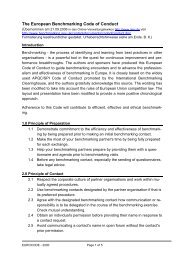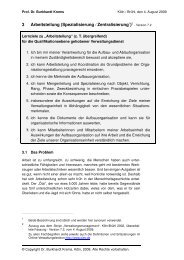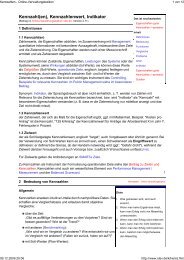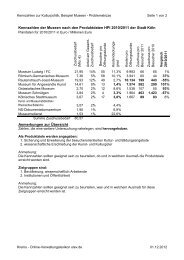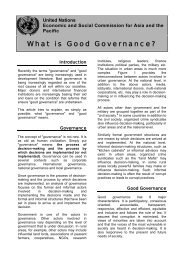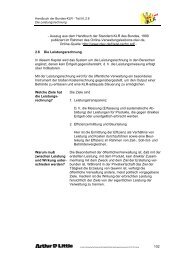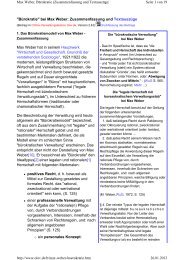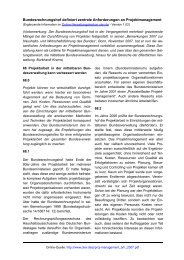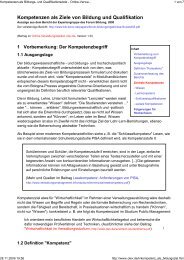Strategy Survival Guide
Strategy Survival Guide
Strategy Survival Guide
You also want an ePaper? Increase the reach of your titles
YUMPU automatically turns print PDFs into web optimized ePapers that Google loves.
Scenarios used in the <strong>Strategy</strong> Unit study<br />
Non-GM-Specific Regulations<br />
Tangled<br />
threads<br />
Part of the<br />
fabric<br />
UK Public<br />
Rejects GM<br />
UK Public<br />
Accepts GM<br />
Not made<br />
in the UK<br />
Bare<br />
minimum<br />
Separate<br />
weave<br />
GM-Specific Regulations<br />
The role played by the scenarios in the final report<br />
The five different scenarios played a crucial role in the final report. After we had defined the<br />
characteristics and conditions of each scenario, we considered the costs and benefits that would arise in<br />
each case. This enabled the study to highlight the importance of trade-offs and weighting of different<br />
costs and benefits. An example is attached at Annex A, for just one of the scenarios. As a final step, we<br />
also considered possible disrupters in each of the scenarios – how these might arise, how they would be<br />
dealt with and what the implications might be.<br />
Lessons learned<br />
Developing new scenarios is time-consuming - but definitely achievable. In some cases it will be possible<br />
to use "off the shelf" scenarios developed by other people. But in other cases, no existing scenarios will fit<br />
the bill. If so, it may well be worthwhile developing new scenarios, providing that sufficient time and<br />
resources are devoted to this exercise.<br />
Scenarios are a tool, not an end in themselves. Scenarios should be defined and used in the way that is<br />
most helpful to the study - there are no right or wrong answers.<br />
The importance of involving stakeholders and experts in scenario development. If scenarios are to be<br />
used, it is essential that they have widespread buy-in. The best way to achieve this is by giving the<br />
relevant people a "sense of ownership" of the scenarios.<br />
This scenarios were crucially important in the GM study, where opinion was so polarised and we faced<br />
criticism that it was there to provide evidence for a predetermined Government decision to allow the<br />
commercialisation of GM. The scenarios illustrated that we were studying all possibilities, including a "no-<br />
GM" future.<br />
The scenarios analysis enabled the SU to investigate whether government policy objectives could be<br />
supported across a range of possible outcomes.<br />
Scenarios can be powerful tools - but they cannot do everything! Scenarios should be seen as a<br />
complement to other techniques, such as risk assessment or cost-benefit analysis - not as a substitute.<br />
Scenarios need to have names! This may be one of the most difficult tasks in scenario development - but<br />
well-chosen scenario names are much more informative than 1, 2, 3 ... or A, B, C etc.<br />
<strong>Strategy</strong> <strong>Survival</strong> <strong>Guide</strong> – <strong>Strategy</strong> Skills<br />
Page 164



